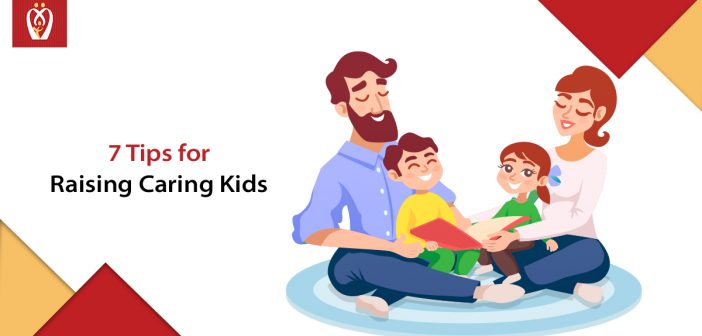As a parent it is important to know that the seeds of empathy, care, and compassion are present from birth. To grow into caring, ethical people, children require you to assist them in nurturing these seeds into full development at every stage of childhood.
Empathy is necessary for a child’s social development to be healthy. Kids have a hard time interacting with other kids who don’t comprehend how they’re feeling, and social development might be challenging if a child can’t stop and consider how something makes someone feel.
Children as young as three or four years old can empathise. It is, however, a developmental skill that begins in early childhood and early elementary school and continues through middle school, high school, and early adulthood through social interactions.
Empathy is a developmental trait that is linked to the growth of the frontal brain, which is responsible for rational thinking, planning, reading social cues, and impulse control. This suggests that empathy fully develops in children around the same time as the frontal lobe, which occurs in late adolescence or early adulthood.
We should endeavour in raising kids who care for others not only because it’s the right thing to do but also because children who can sympathise with and accept responsibility for others are more likely to be happy and successful. They’ll have better relationships for the rest of their life, and happy people have great relationships.

Below are a set of tips to raising kids who are caring, respectful, and ethical.
1. Work to develop caring, loving relationships with your kids
Your Children must have relationships with the people in their lives that are connected, caring, and loving. Intimate relationships are an essential aspect of being a human being. These ties are formed between the parents or caregivers and their children in the home. Giving your children your undivided attention and affection is one of the most important aspects of forming a meaningful connection and hence raising kids who are caring. It’s also critical to listen attentively and enthusiastically, maintaining eye contact throughout.
2. Be a strong moral role model and mentor
Children become what they see and believe. Leading by example is one of the most effective ways for you to form your children’s character and raising kids who are caring.
It’s critical to show compassion, empathy, and kindness regularly.
3. Make caring for others a priority and set high ethical expectations
Although you might state that you want your children to grow up to be kind, the message does not get through to the children. Children are selfish by nature. As a result, it is up to you to emphasise and reinforce the value of empathy. You can help your children achieve this by requiring them to keep their promises. You should teach them to work toward a solution even if an issue or dilemma emerges. Teaching your children to speak up for crucial concepts of fairness and justice is also vital.
4. Provide opportunities for children to practice caring and gratitude
Selflessness- and important characteristic in raising kids who are caring, like many other taught character traits, is developed through experience and repetition. You may help your children build appreciation by providing opportunities for them to practise it. Providing age-appropriate situations to assist less fortunate individuals is one method to do this. Another helpful technique is to have kids write short thank-you notes to grandparents, siblings, teachers, and others.
5. Expand your child’s circle of concern
You as a parent must ensure that your children demonstrate concern and care for others who live outside of their own community, this is key step for raising kids who are compassionate.
You should encourage their children to participate in any aspect of assisting or assisting persons with whom they are not acquainted.
Children should also be encouraged to participate in activities outside of their neighbourhood. This will allow them to build new relationships and sympathy for people they might not otherwise meet. You can also tell stories to your children about different cultures and customs around the world.
6. Promote children’s ability to be ethical thinkers and positive change-makers in their communities
Children can be creative and involved citizens who can contribute to a society’s overall well-being. You as parents can educate moral awareness by supporting ethical thought and describing the virtue in a given context. For example, you might begin by demonstrating to their children how to create a positive change in their own family.
Assisting youngsters in learning about their conscience is essential in teaching them how to use their inner authority to control their own behaviours.
7. Help children develop self-control and manage feelings effectively
Children frequently struggle to cope with challenging or stressful situations. Therefore, they must learn to control and handle themselves to control their emotions and keep a calm demeanour.
The most essential thing you can do to assist your child in acquiring self-control is to learn to control your own emotions to remain calm and empathetic with them. For example, teach your child to take “three breaths” after being in an emotionally charged scenario to help them regulate their emotions and become more conscious.
When a parent or caregiver establishes a restriction that the child accepts, the infant demonstrates self-control in its infancy. Self-reflection is a valuable tool for learning from unpleasant consequences or incorrect behaviour and hence raising kids who are caring. It puts a “pause” on what could otherwise be a vicious cycle of bad habits.
Lastly, it is important to be patient with your little one. Kindness and compassion are learned virtues, yet even grownups face difficult situations. Raising kids who are a caring and tolerant human being begins with being a caring parent and a loving role model.







